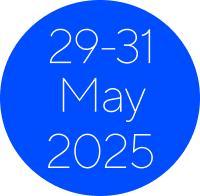Chair: Jo Dawes (United Kingdom)
Speakers: Salony Raskar (India), Julie Broderick (Ireland), Tonya Miller (United States)
- To describe the health of people experiencing homelessness and the challenges they face accessing and utilising physiotherapy, from a global perspective
- To explore the holistic value of clinical physiotherapy assessment and treatment, physical activity, health education and health promotion as tools for health gain and connection with people experiencing homelessness
- To explore the holistic value of clinical physiotherapy assessment and treatment, physical activity, health education and health promotion as tools for health gain and connection with people experiencing homelessness
Homelessness
Homelessness is a globally important problem. It can be defined as ‘rooflessness’ (living without shelter), ‘houselessness’ (temporary places to sleep), ‘living insecurely’ (accommodation at risk) or ‘inadequate housing’ (unsuitable accommodation).[1] 1.6 billion people globally are currently living in inadequate housing.[2] Causes of homelessness include, but are not limited to, conflict, natural disasters, and reducing availability of affordable housing.
Homelessness and Health
People experiencing homelessness, regardless of location, commonly experience disproportionally poor health, including a high prevalence of musculoskeletal, respiratory, neurological conditions and traumatic injuries.[3] Many are living with multiple long-term conditions and geriatric syndromes such as frailty and falls,[4] which commonly manifest at a far younger age than in people who are housed.[5] Physiotherapy-led assessment, treatment, holistic physical activity,[6] and health promotion interventions[7] are helpful therapeutic tools to prevent and treat these conditions but are often poorly accessed by this population.[8]
Physiotherapy for People Experiencing Homelessness
Despite the volume of health conditions in this population that physiotherapists can help, there is limited research available to guide physiotherapy practice in this area. Moreover, the available research has been predominantly generated in high-income countries. The aim of this symposium is to highlight and showcase the role of physiotherapy for people experiencing homelessness from a global standpoint.
Symposium structure
This interactive focused symposium will bring together perspectives of homelessness and physiotherapy care from high- and low-income countries, specifically the Asia Western Pacific, Europe and North America Caribbean regions of WCPT. We will explore current and future challenges of how the physiotherapy profession can provide for people experiencing homelessness whilst appreciating equity, access, and cultural diversity. We will also showcase evidence-based holistic strategies that physiotherapists can adopt, incorporating physical activity and health promotion interventions tailored to the health needs of this marginalised group. Our Chair, Joanna Dawes, will present an overview of what is known about the health of people experiencing homelessness and the challenges and opportunities physiotherapists should consider in care provision. Our first speaker, Salony Raskar, will outline physiotherapy provision in a low-resource setting, providing vignettes and case studies from India. Then Dr Julie Broderick, will discuss the holistic value of targeted physical activity programmes from a local and global perspective and Dr Tonya Miller will address practical health promotion strategies for this population. The Chair will then facilitate an interactive discussion session, encouraging questions from the audience using mobile technologies.
Conclusions
The scope of the physiotherapy role for people experiencing homelessness is evolving and not yet fully defined, but has huge potential for positive. Physiotherapists are well equipped to meet many of the health challenges and high care needs of this population, however, interaction between the profession and population remains sparse. This symposium will explore experience and research about how physiotherapy skills can be applied to this area in different cultural and clinical contexts. It is relevant to physiotherapists world-wide, including those engaging with patients, education, or research. Lessons learned can be directly applied to other marginalised groups, so this symposium has wide-reaching application across the spectrum of physiotherapy practice.
- Edgar B, Meert H, Doherty J. European Observatory on Homelessness: Third Review of Statistics on Homelessness in Europe. Developing and Operational Definition of homelessness. : European Federation of National Organisations Working with the Homeless (FEANTSA), 2004.
- The United Nations DoEaSA. Everyone included – how to end homelessness 2024 [Available from: https://www.un.org/tr/desa/everyone-included-%E2%80%93-how-end-homelessness accessed 23 Apr 2024 2024.
- Lewer D, Aldridge RW, Menezes D, et al. Health-related quality of life and prevalence of six chronic diseases in homeless and housed people: a cross-sectional study in London and Birmingham, England. BMJ Open 2019;9(4):e025192. doi: 10.1136/bmjopen-2018-025192
- Kiernan S, Ní Cheallaigh C, Murphy N, et al. Markedly poor physical functioning status of people experiencing homelessness admitted to an acute hospital setting. Scientific Reports 2021;11(1):9911. doi: 10.1038/s41598-021-88590-0
- Mantell R, Hwang YIJ, Radford K, et al. Accelerated aging in people experiencing homelessness: A rapid review of frailty prevalence and determinants. Front Public Health 2023;11:1086215. doi: 10.3389/fpubh.2023.1086215 [published Online First: 20230316]
- Dawes J, Rogans-Watson R, Broderick J. ‘You can change your life through sports’—physical activity interventions to improve the health and well-being of adults experiencing homelessness: a mixed-methods systematic review. British Journal of Sports Medicine 2024:bjsports-2023-107562. doi: 10.1136/bjsports-2023-107562
- Miller TY, Marx JM, Portzer LA. An exploratory study of physical activity educational programming for women experiencing homelessness. Journal of Social Distress and Homelessness 2023:1-6. doi: 10.1080/10530789.2023.2187523
- Dawes J, Deaton S, Greenwood N. Homeless people’s access to primary care physiotherapy services: an exploratory, mixed-method investigation using a follow-up qualitative extension to core quantitative research. BMJ Open 2017;7(6):e012957. doi: 10.1136/bmjopen-2016-012957
See the 24 focused symposia to be presented at congress.
Find out who the key speakers at congress will be.
Find out which clinical topics will be covered in these discussion-based seminars.




